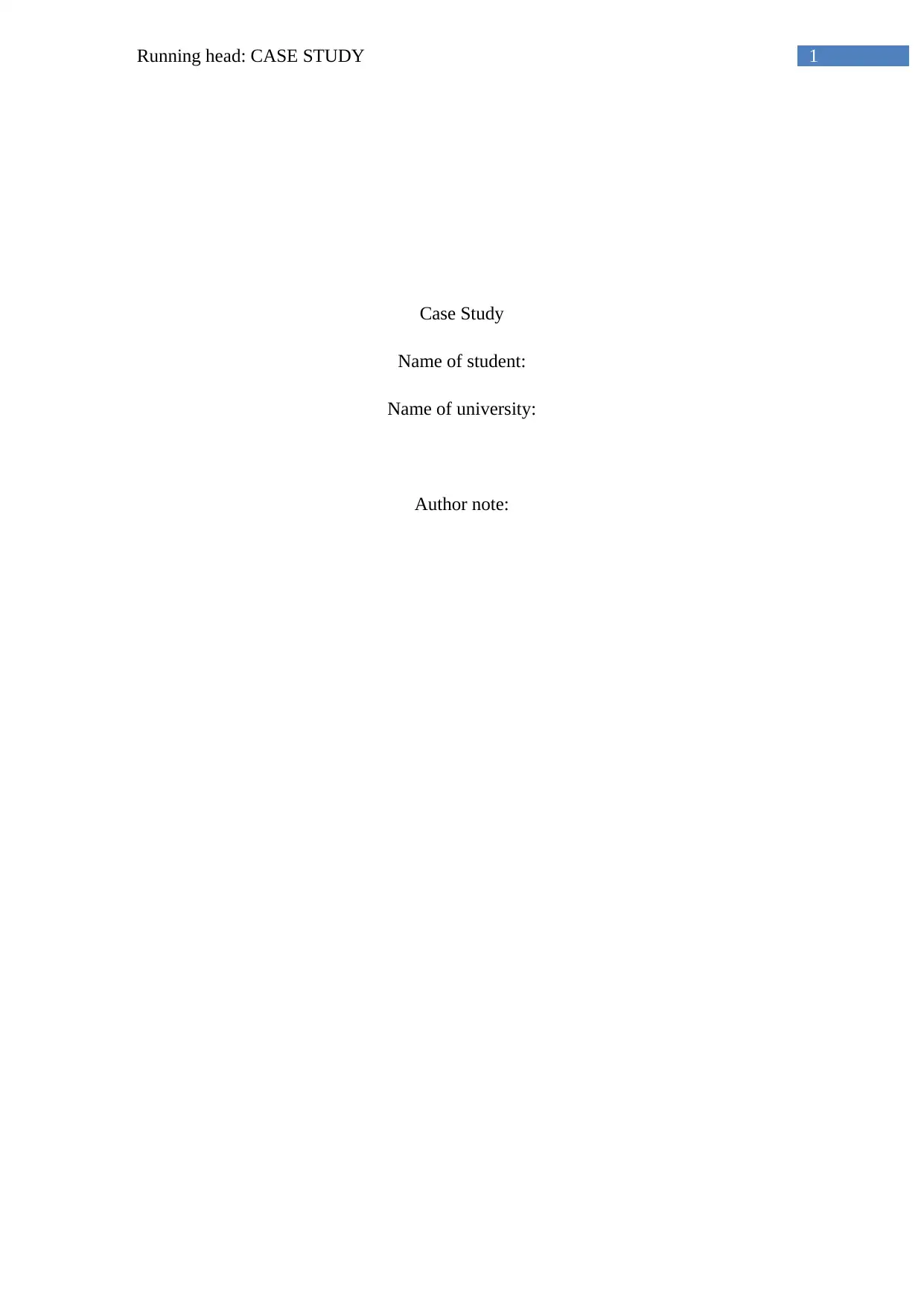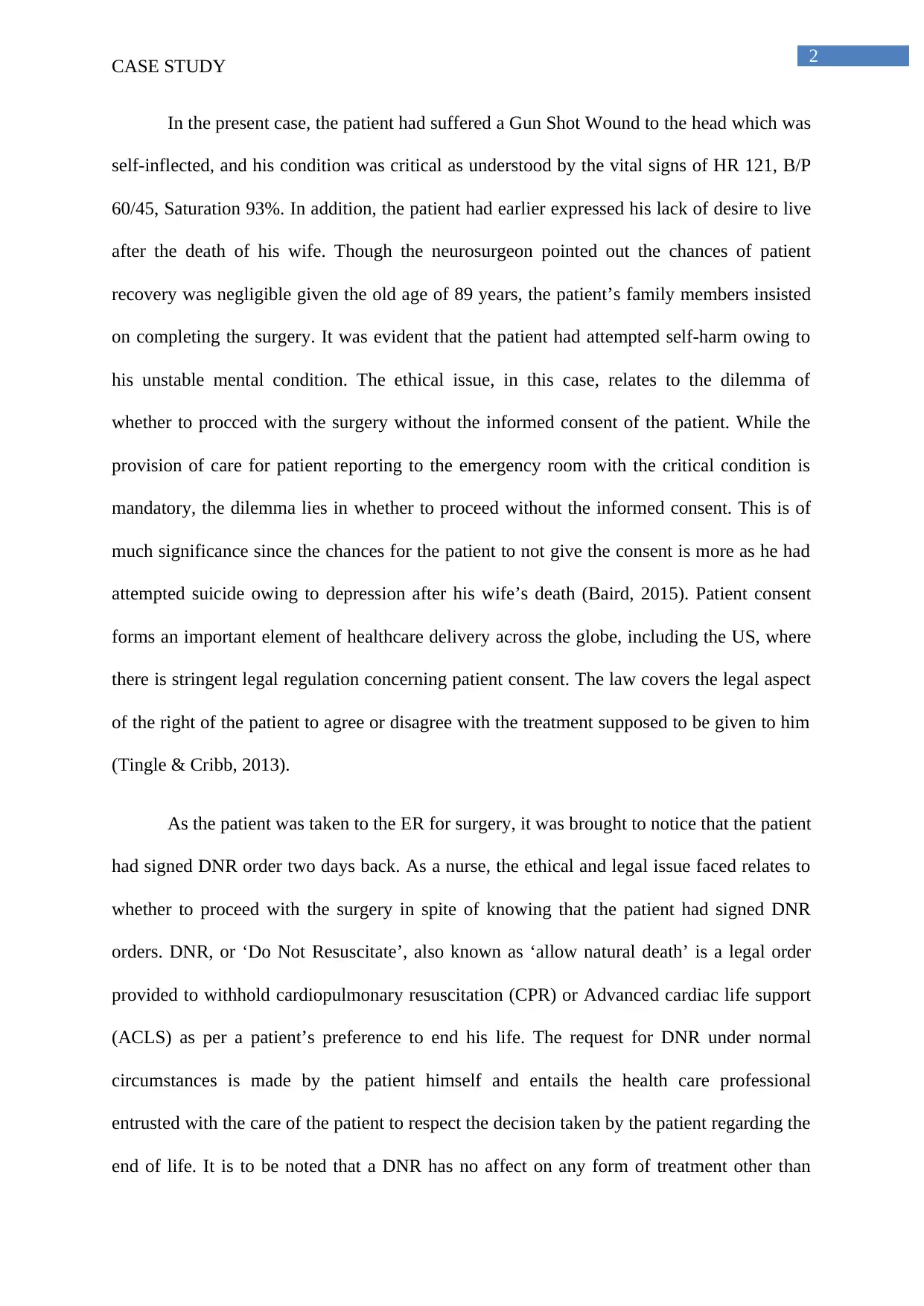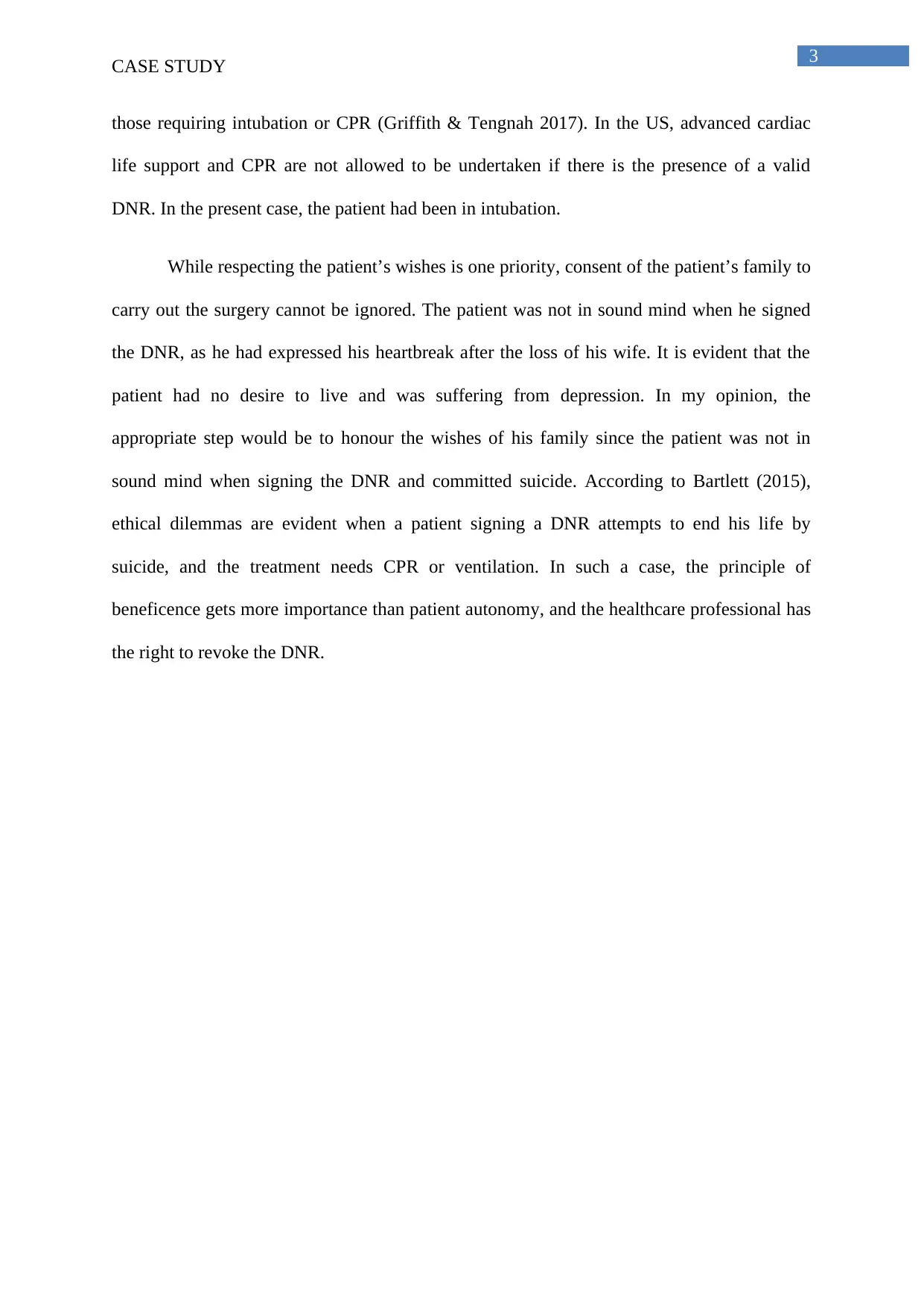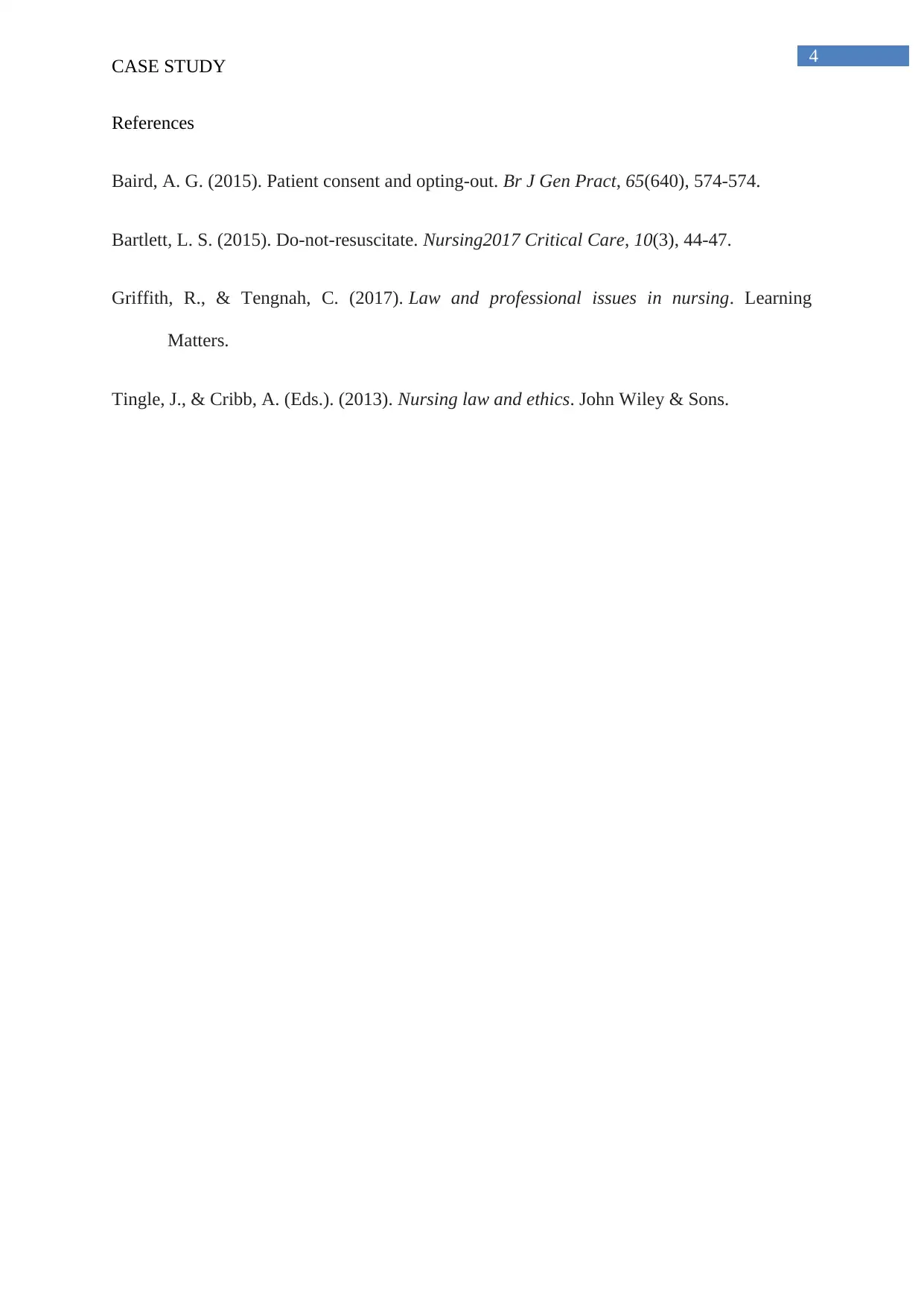Ethical Dilemmas in Healthcare: A Case Study on DNR and Patient Rights
VerifiedAdded on 2020/05/16
|4
|762
|74
Case Study
AI Summary
This case study presents an ethical dilemma in healthcare involving a patient who attempted suicide and had previously signed a DNR order. The patient, an 89-year-old man, suffered a self-inflicted gunshot wound and was in critical condition. The core ethical issue revolves around whether to proceed with surgery despite the DNR order, considering the patient's mental state and the family's insistence on treatment. The case explores the legal and ethical implications of patient consent, particularly when the patient's capacity to consent is questionable due to depression and suicidal ideation. The study highlights the conflict between respecting patient autonomy, as expressed in the DNR order, and the principle of beneficence, which might suggest overriding the DNR to save the patient's life. The analysis considers relevant legal regulations, the role of healthcare professionals, and the importance of considering the patient's best interests in ethically challenging situations. The conclusion supports honoring the family's wishes since the patient was not in a sound mind when signing the DNR and committed suicide.
1 out of 4











![[object Object]](/_next/static/media/star-bottom.7253800d.svg)